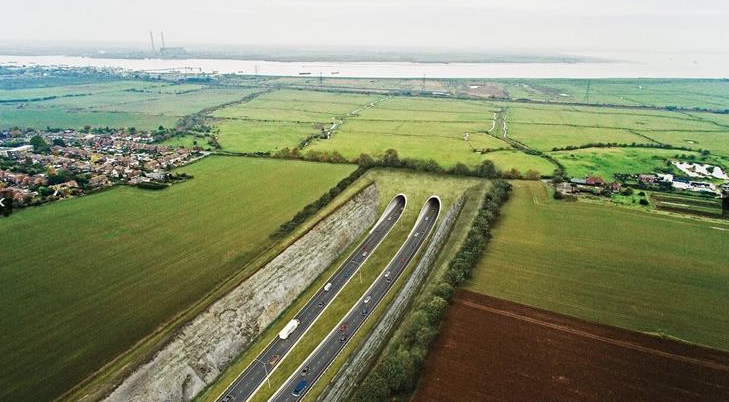Lower Thames Crossing: you can have your say on it from today
 Coming our way soon? The Lower Thames Crossing is scheduled to be completed in 2027
Coming our way soon? The Lower Thames Crossing is scheduled to be completed in 2027
In the week that the Intergovernmental Panel on Climate Change released a report telling us we need to take immediate action to curb catastrophic climate change, we learn of the opening of the next stage of consultation on plans for the new Lower Thames Crossing (LTC).
The consultation website bills it as the solution to “unlocking opportunities and economic growth for the region and the country… offering new connections and better journeys”.
Earlier stages of consultation promised that the new LTC was essential to solve congestion and air pollution at the existing, undoubtedly over-stretched, Dartford crossings.
Even so, scrutiny of those documents showed that, on opening, a new crossing would reduce traffic flows at Dartford by a pitifully low 14 per cent.
This is a tiny benefit compared with the environmental and community harm that would be caused by the biggest UK road project since construction of the M25.
It is now clear that a new crossing will not be about achieving environmental and public benefits. Rather, it is about creating more vehicle journeys, about intensifying the housing crisis in the South East and about opening up ever more green spaces for development.
Last year, colleagues in CPRE’s national team published research showing unequivocally that increasing road capacity simply resulted in more vehicle journeys: we can’t build our way out of congestion. There’s a good little video summarising the report here.
At a time when we need to radically rethink how we use energy to move ourselves and our stuff around, the government’s focus on new road capacity is out of date.
Instead of investing solely in new roads, we want government to focus on better public transport links, to rationalise the over-reliance on road-based freight movement and to support planning policies that reduce the need to travel by car and support walking and cycling.
Don’t miss your chance to have your say on the proposals: the consultation closes on Thursday, December 20, and the documents can be found here.
